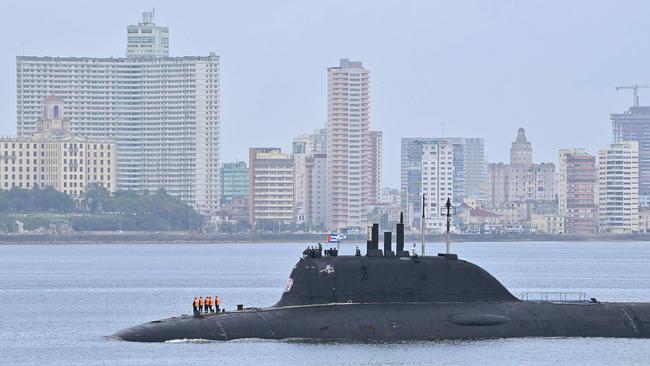German spy planes based in UK to join hunt for Putin’s subs
German spy planes will take off from Scotland next year to help protect the North Atlantic following concerns about Russian submarines close to the UK.

German spy planes will take off from Scotland next year to hunt for Russian submarines under a defence pact between London and Berlin.
The P-8 Poseidon maritime patrol aircraft from the German navy will “periodically” be deployed from RAF Lossiemouth to help protect the North Atlantic following concerns about Russian submarines close to the UK.
The RAF has nine of the Boeing aircraft, which are equipped with sensors and weapons systems used to find, identify and track Russian boats, and the German ones will bolster Nato security.
John Healey, the defence secretary, and Boris Pistorius, his German counterpart, will sign the agreement in London today (Wednesday). A Whitehall source said it was the first time German aircraft had been based in the UK for more than 25 years. They added that although there had been limited deployments to the UK as part of joint training with the Germans in the 1980s, the latest announcement marked the first time they had been deployed at this scale and for operations. It was unclear how many German naval aircraft would be stationed in the UK at any one time.
Under the pact Britain will open a new factory to make artillery gun barrels for the first time in ten years using Sheffield Forgemasters’ steel.
The partnership includes an agreement to work on the rapid development of a long-range strike weapon that can fire farther than British-made Storm Shadow missiles, which have a range of at least 155 miles, and be more precise than any in use at present.
Allies envisage the weapon being able to travel from Berlin to Moscow if President Putin decided to launch tactical nuclear weapons. It would have a range of about 2,000 miles, according to recent discussions. One defence source said it would go “well beyond” existing capabilities.
In 1987 the US and the Soviet Union signed the Intermediate-Range Nuclear Forces Treaty, or INF, which banned land-based ballistic missiles with ranges from 310 to 3,400 miles. The US withdrew from the treaty in 2019 after the White House accused Russia of violating it.
The Ministry of Defence said the agreement, between Europe’s two biggest defence spenders, marked a fundamental shift in relations with Germany and for European security.
Last year Admiral Sir Tony Radakin, head of the armed forces, spoke of a “phenomenal increase in Russian submarine and underwater activity” over the past two decades. He also raised concerns about the security of crucial undersea communications cables.
The two nations will explore new undersea surveillance capabilities as part of the deal so they can better detect any Russian activity around the cables.
They will also train and hold exercises together on the eastern flank of Nato, where they will seek to develop new ways of fighting and drones to fly alongside fighter jets.
As part of plans to support Ukraine, they will work on arming German Sea King helicopters with modern missile systems.
The Times





To join the conversation, please log in. Don't have an account? Register
Join the conversation, you are commenting as Logout